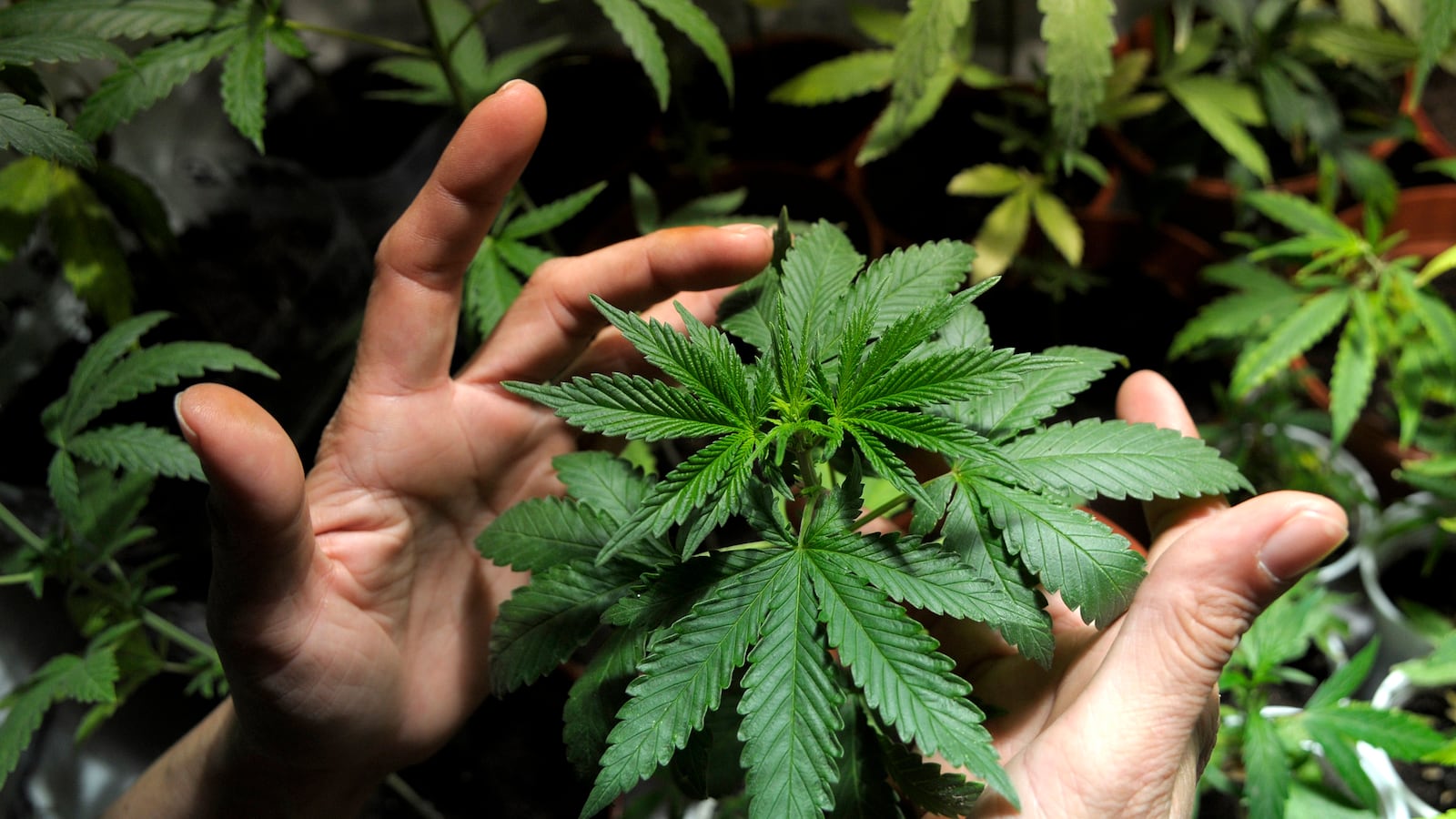While a high school student at Honolulu’s elite Punahou School, Barack Obama was a high-flying member of a pot-smoking, party-hearty crew that called itself “the Choom Gang.” As biographer David Maraniss revealed in last year’s Barack Obama: The Story the future president “had a knack for interceptions. When a joint was making the rounds, he often elbowed his way in, out of turn, shouted ‘Intercepted!,’ and took an extra hit.”

In his current trip to meet with Mexico’s President Enrique Peña Nieto, Obama will once again be talking about illegal drugs and interceptions—and he will almost certainly continue his long habit of bogarting other people’s joints. As CNN summarizes it, one of the “key issues” of the trip is to strengthen efforts to stop the flow of pot, cocaine, methamphetamines, and other drugs from Mexico into the United States.
Despite thinly sourced stories by Obama boosters that the president in his second term “will pivot to the drug war” that he privately considers a “failure,” there’s every reason to believe any new initiatives coming out of this Mexico trip will disappoint the liberals, libertarians, and smattering of conservatives who took Barack Obama seriously when he questioned longstanding drug policies.
Once upon a time, Obama seemed to entertain significant reforms to laws and practices that have had no appreciable effect on the availability or use of illegal drugs but have cost trillions of dollars, swelled state and federal prison populations, and increased black-market violence in the United States and Mexico.
When running for the U.S. Senate in 2004, Obama said, “We need to rethink how we are operating in the drug wars and I think currently we are not doing a good job.” In 2006, while on a book tour for The Audacity of Hope and testing the waters of a presidential run, he was comfortable enough discussing his personal experiences to joke, “I inhaled frequently...that was the whole point.” In 2008, he said that he wouldn’t use federal resources to target medical marijuana providers and users in states that had made the stuff legal—a promise reiterated by Attorney General Eric Holder shortly after taking office in 2009.

Yet for all that, Obama has governed not merely as a standard-issue White House drug warrior but as a particularly hard-headed and hard-hearted one. Eighteen states and the District of Columbia have legalized medical marijuana and polls routinely show 70 percent to 80 percent of Americans support the stuff, but the Obama administration has actually outpaced the Bush administration when it comes to dispensary raids. As my Reason colleague Mike Riggs has reported, the Obama administration has also continued or expanded programs that funnel billions of dollars to oppressive drug-war operations in Asia and Mexico (where the results have included “multiple reports of forced disappearances by the army, navy, and police.”)
In several public settings, including a 2009 online town hall, Obama literally laughed off questions of marijuana legalization before emphatically stating that taxing and regulating weed was out of the question: "The answer is no, I don't think that is a good strategy to grow the economy." The president’s drug czar, Gil Kerlikowske, continues to insist that “legalization is not in the president’s vocabulary.”
Now that Washington State and Colorado have legalized recreational pot—and a majority of Americans believe that marijuana should be treated in a similar fashion to beer, wine, and liquor—the stakes have been raised. While the president and his attorney general have yet to issue statements about the federal response to the Washington and Colorado developments, Kerlikowske has been less reticent.
“No state, no executive can nullify a statute that has been passed by Congress,” he told a crowd at an April National Press Club event. “Let’s be clear: law enforcement officers take an oath of office to uphold federal law and they are going to continue to pursue drug traffickers and drug dealers.”
That attitude is reflected in the new “National Drug Control Strategy” document released by Office of National Drug Control Policy, the agency headed up by Kerlikowske. This year’s model claims to continue the Obama’s administration’s previous efforts to “reduce illicit drug use and its consequences in the United States,” which, it says, entails “an approach that rejects the false choice between an enforcement-centric ‘war on drugs’ and drug legalization.”
Which is to say, simply, that even as the president heads to Mexico to talk about drug policy, he plans to keep on keeping on with what he’s been up to since first ascending to the White House. While Obama’s drug czar keeps announcing that the “war on drugs” is over, the declaration has been purely rhetorical. Even as the administration claims its drug policy is guided by hard science and not hot emotions or longstanding prejudice, it continues to insist, for example, that marijuana deserves its Schedule I rating under the Controlled Substances Act. That means that marijuana “has no currently accepted medical use in treatment” and a “high potential for abuse,” just like a wide variety of opioids and LSD.
Over the past few months, President Obama’s approval rating has taken a beating, dropping from about 54 percent to 48 percent. Part of that decline reflects exhaustion and disaffection related to economic issues, flare-ups in the Middle East, and continued partisan acrimony in Washington. But Obama has also worked hard to disappoint many of his most ardent supporters on issues ranging from civil liberties, executive power, and military interventionism, where he has in many ways been indistinguishable (or worse yet) than George W. Bush.
The same holds true for drug policy, where a kid who was once into “total absorption” and “roof hits” has done nothing serious to end what’s rightly called “America’s Longest War.” Sadly, there’s no reason to think that Obama will return from surveying the carnage black markets in drugs have caused in Mexico with any new ideas.






